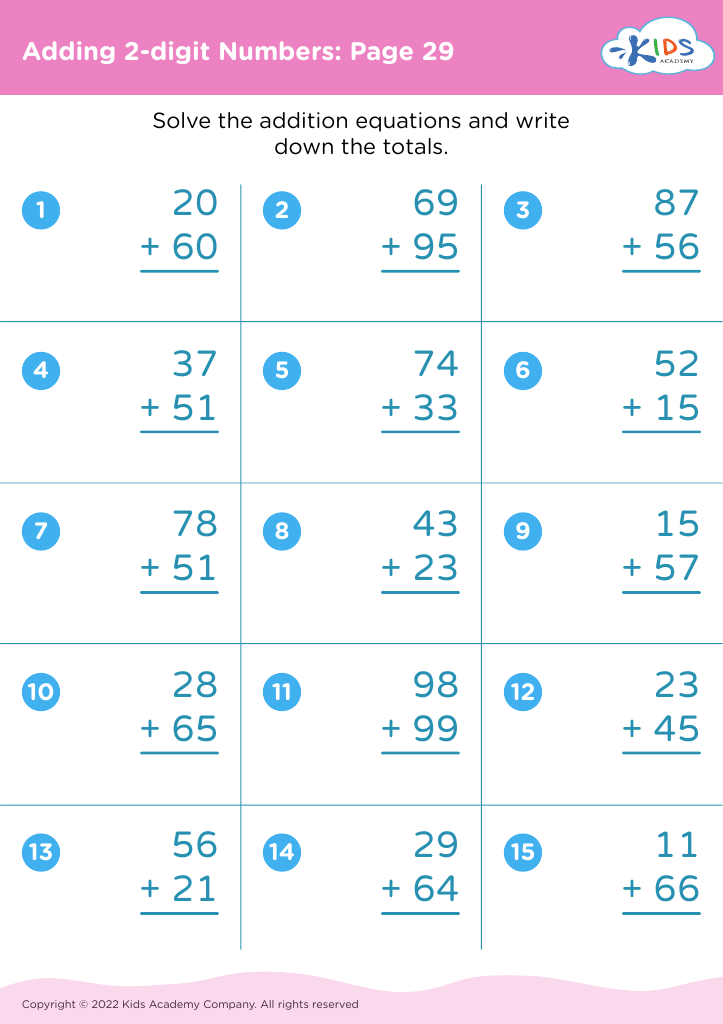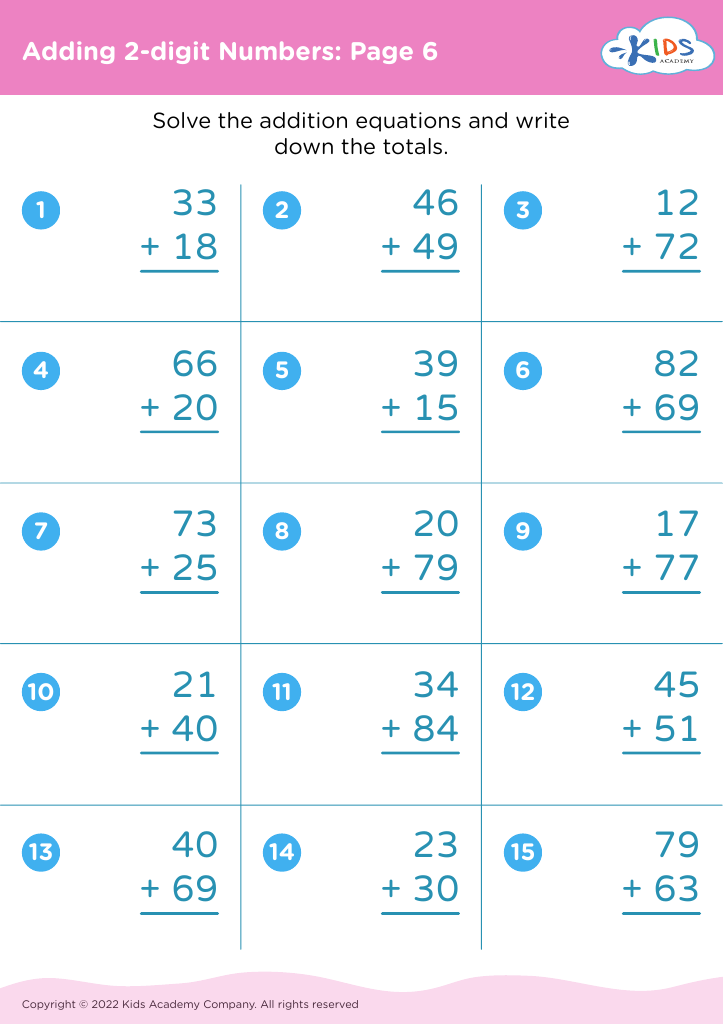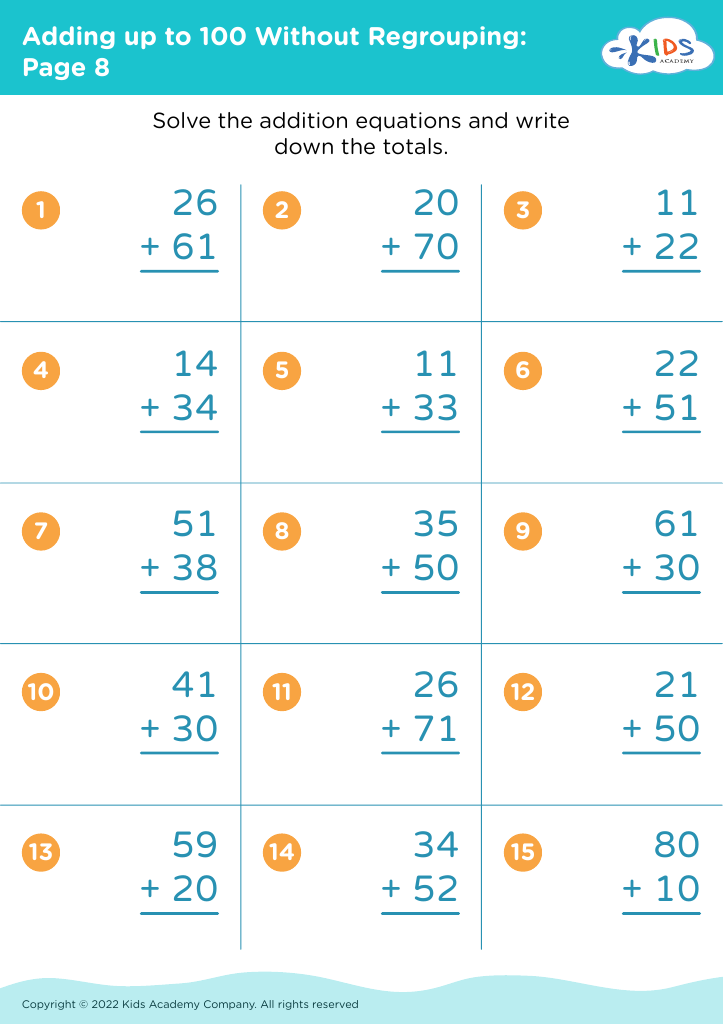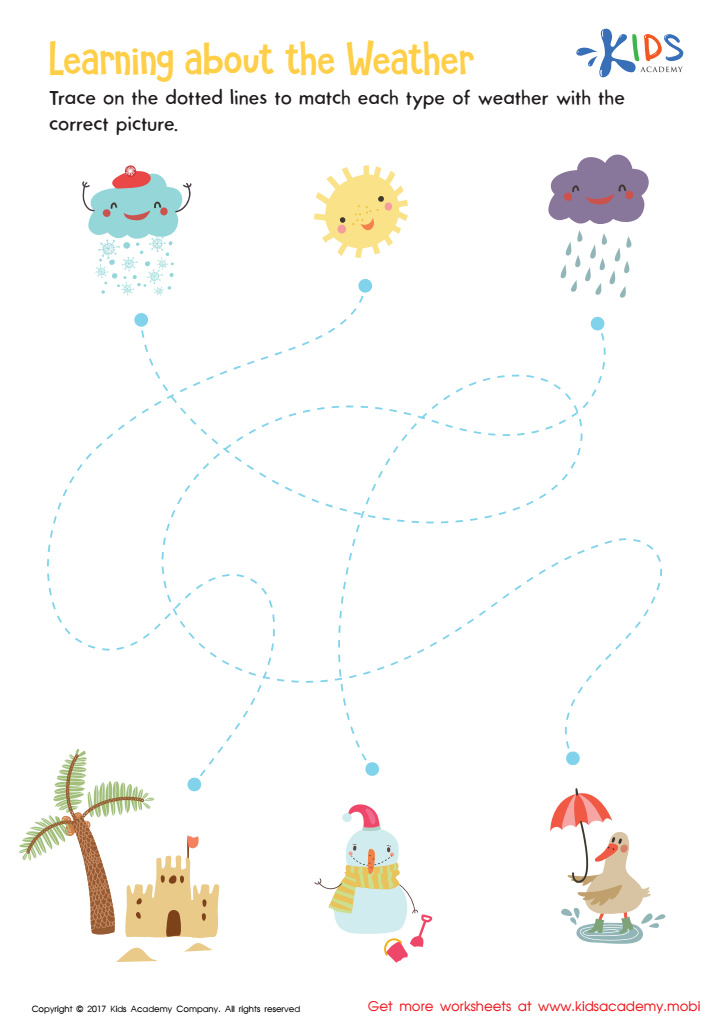Vocabulary development Math Worksheets for Ages 5-7
14 filtered results
-
From - To
Enhance your child’s vocabulary skills with engaging math worksheets designed specifically for ages 5-7! Our printable resources foster a fun learning environment where young learners can explore essential math concepts while expanding their vocabulary. Each worksheet incorporates interactive exercises that merge math terminology with visual aids, encouraging kids to grasp new words and their meanings. By connecting language and arithmetic, these worksheets support comprehensive learning and make math a delightful experience. Perfect for parents and educators, our vocabulary development materials ensure that your child builds a strong foundation for future academic success. Explore our collection and watch your child's confidence flourish!
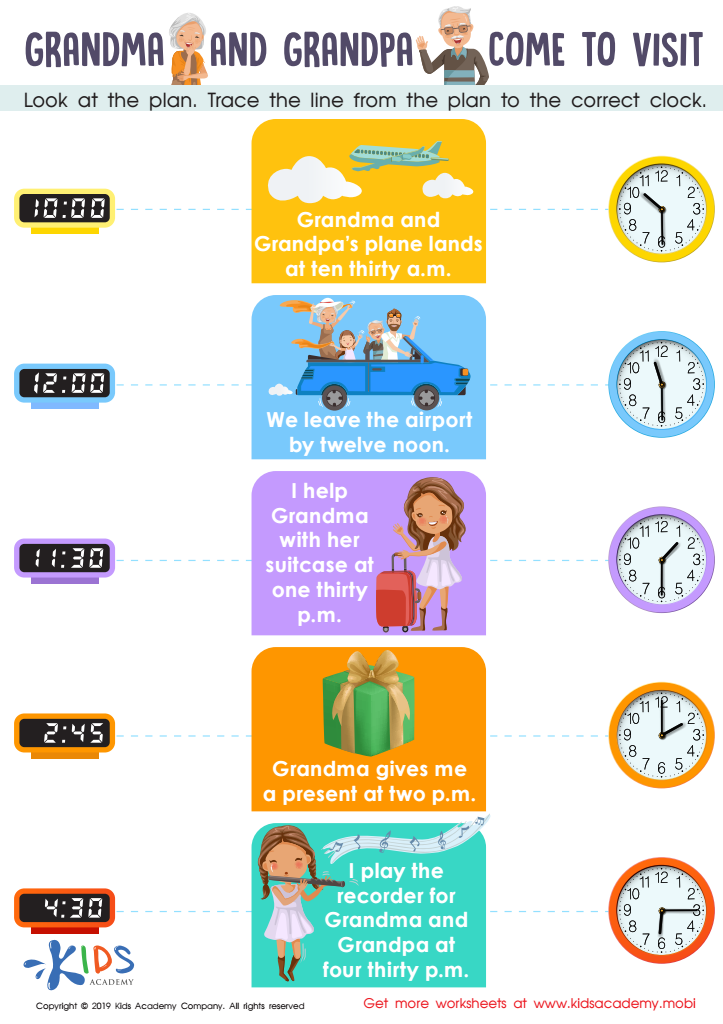

Grandpa and Grandma Come to Visit Worksheet
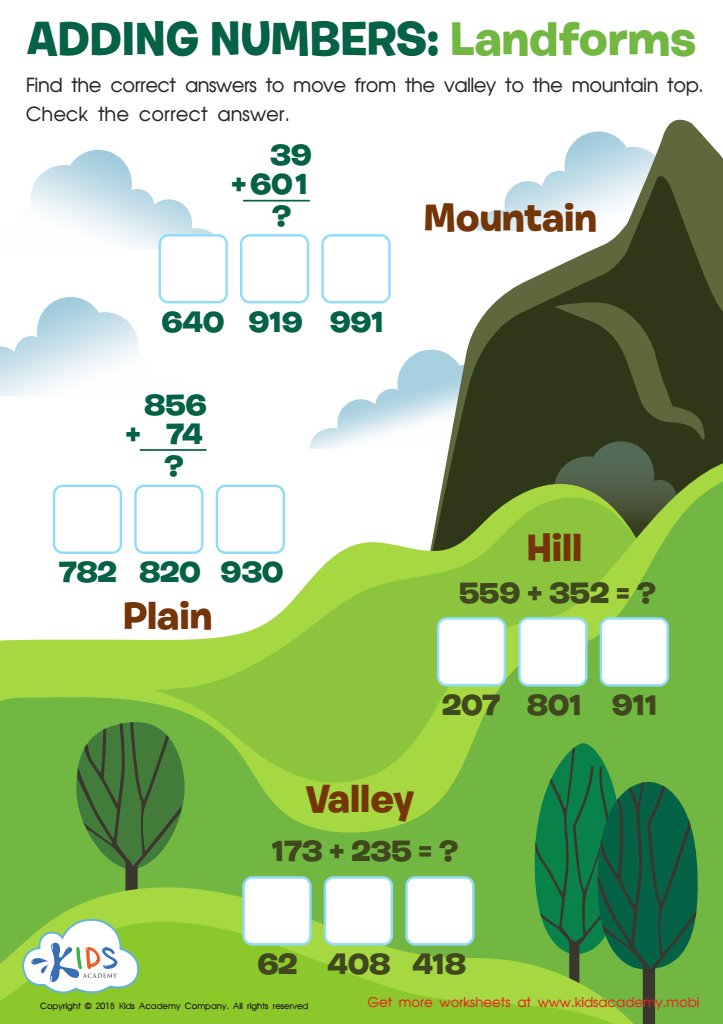

Adding Numbers: Landforms Worksheet
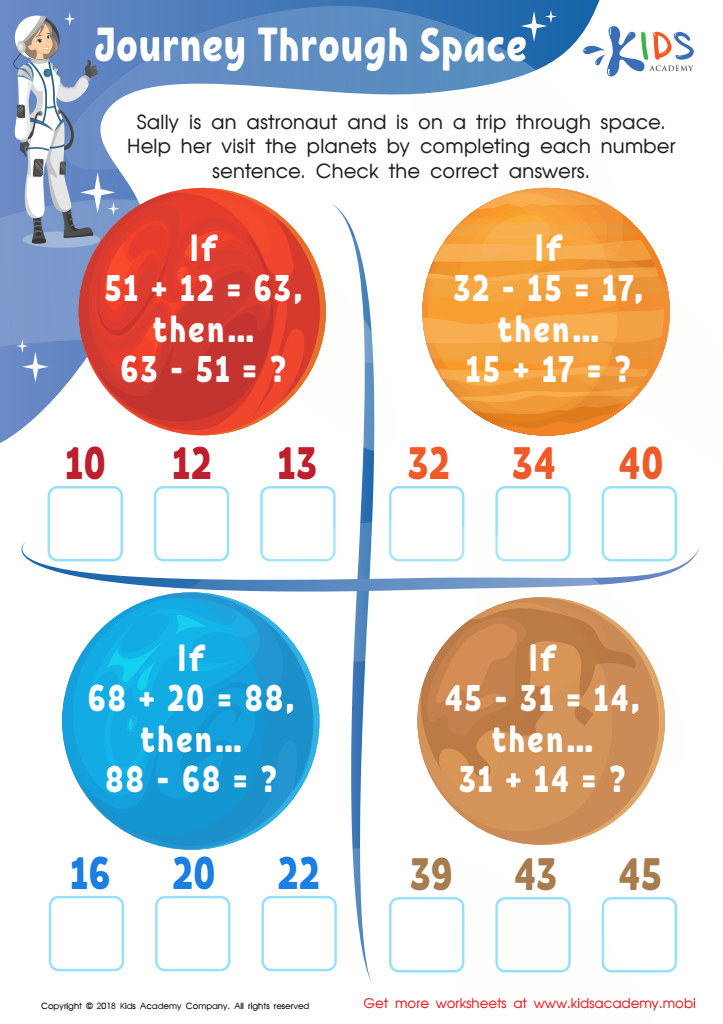

Journey Through Space Worksheet
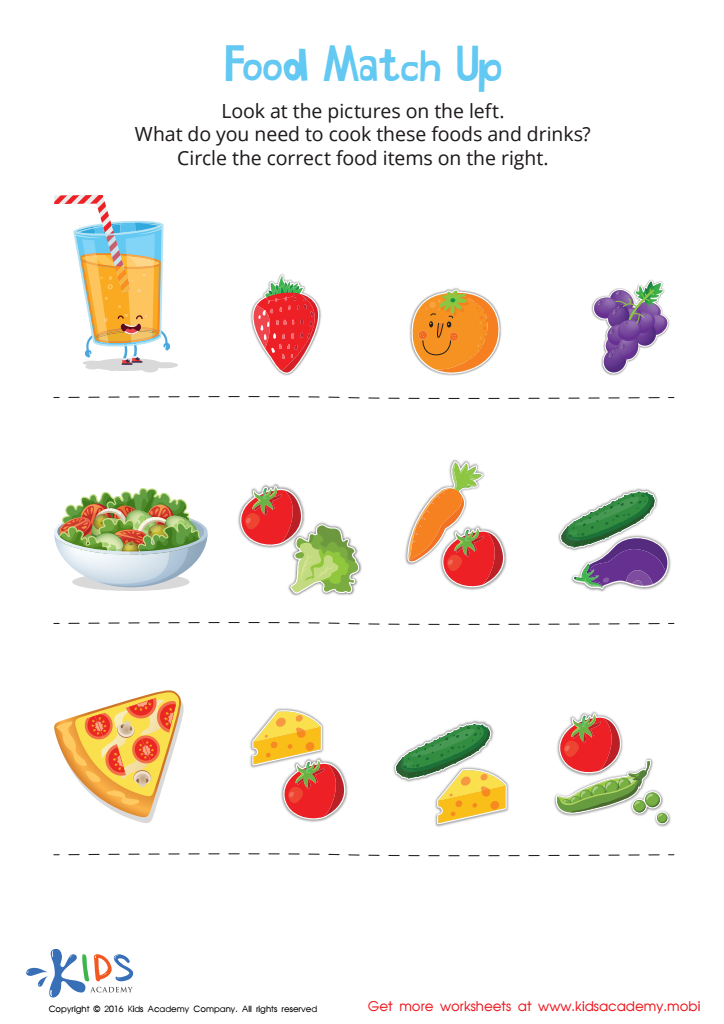

Food Match Up Worksheet
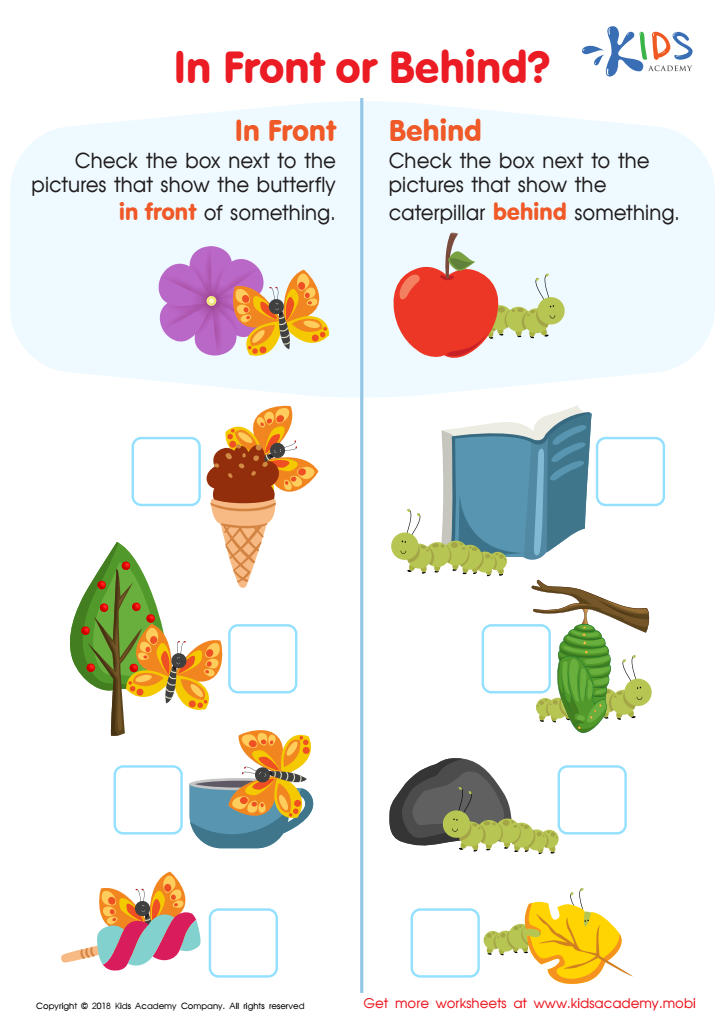

In Front or Behind Worksheet
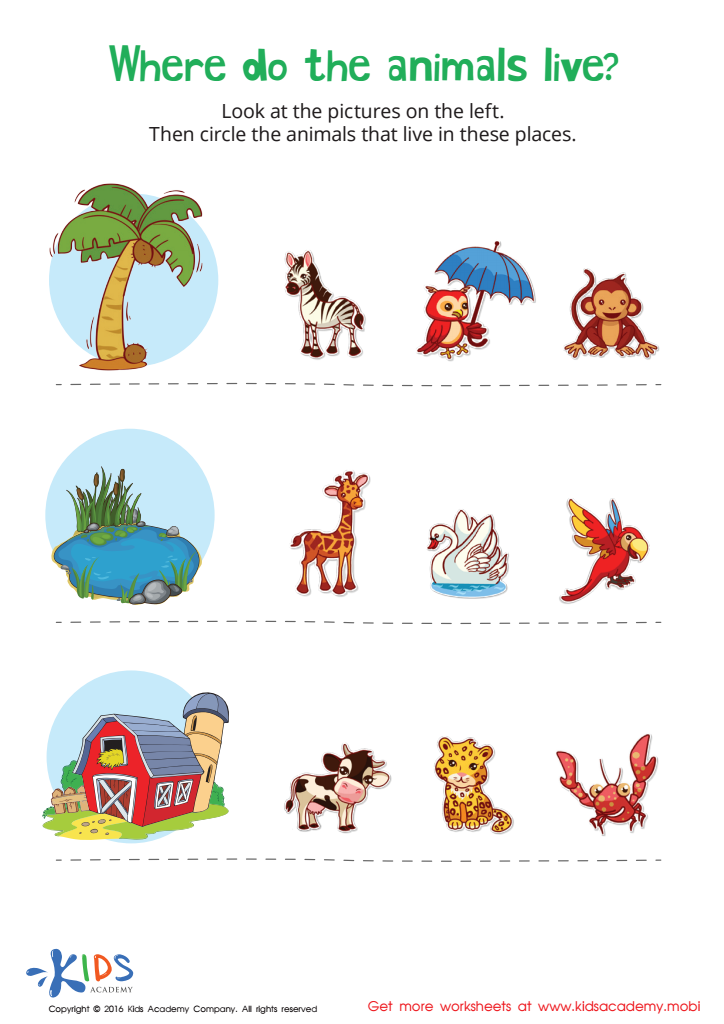

Where Animals Live Worksheet
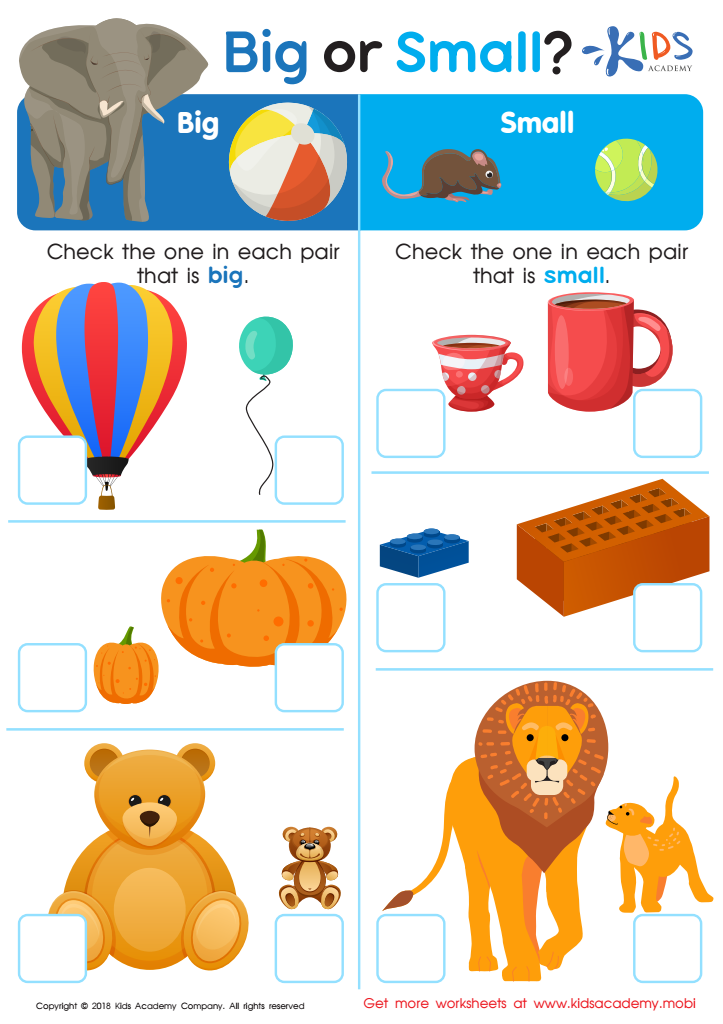

Big or Small? Worksheet
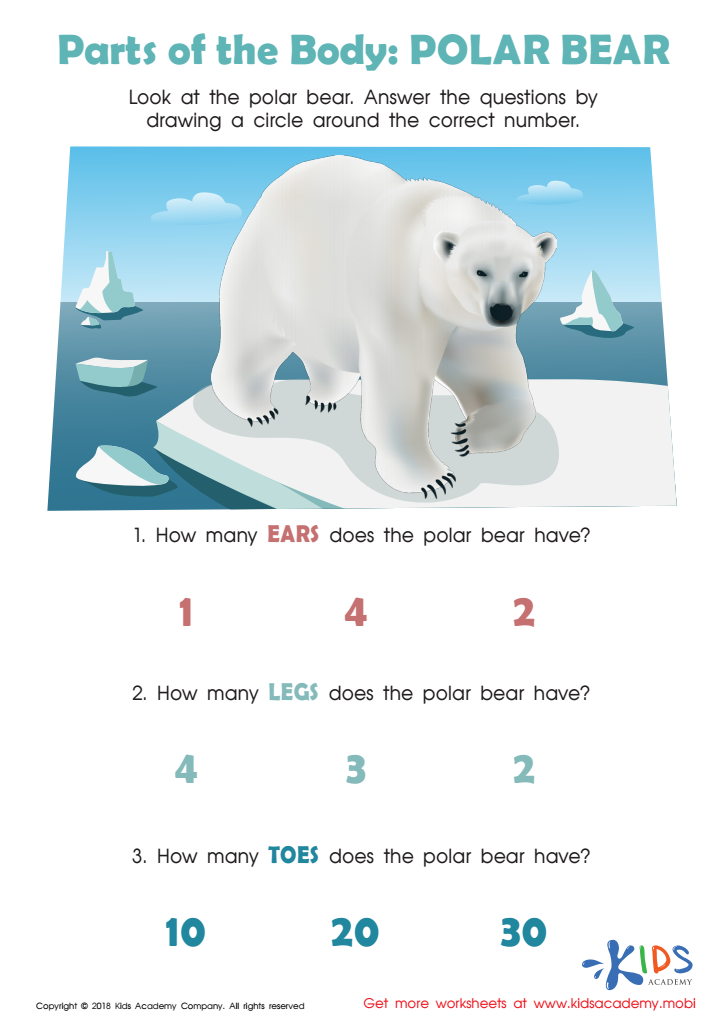

Parts of the Body: Polar Body Worksheet
Vocabulary development in math for children aged 5-7 is a crucial aspect of early education that directly influences their comprehension and application of mathematical concepts. At this age, children are not only learning to identify numbers and execute basic operations, but they are also developing the language skills needed to express their mathematical thoughts and processes. When parents and teachers prioritize vocabulary in math, they help children grasp essential terms like "add," "subtract," "sum," and "difference," which are foundational for understanding math operations.
Furthermore, a strong math vocabulary enhances problem-solving abilities. Children equipped with the right terminology can articulate their reasoning and understand complex instructions, leading to increased confidence and engagement in math activities. It is also vital for facilitating a growth mindset; when children articulate their struggles and triumphs in math, they can better understand their learning journey.
Incorporating rich language experiences into math activities—through discussions, storytelling, and real-world examples—also strengthens overall language skills, benefiting literacy development. Ultimately, fostering math vocabulary during these formative years lays the groundwork for future academic success and encourages a positive attitude toward learning in general. Thus, investment in vocabulary development is essential for both parents and educators.

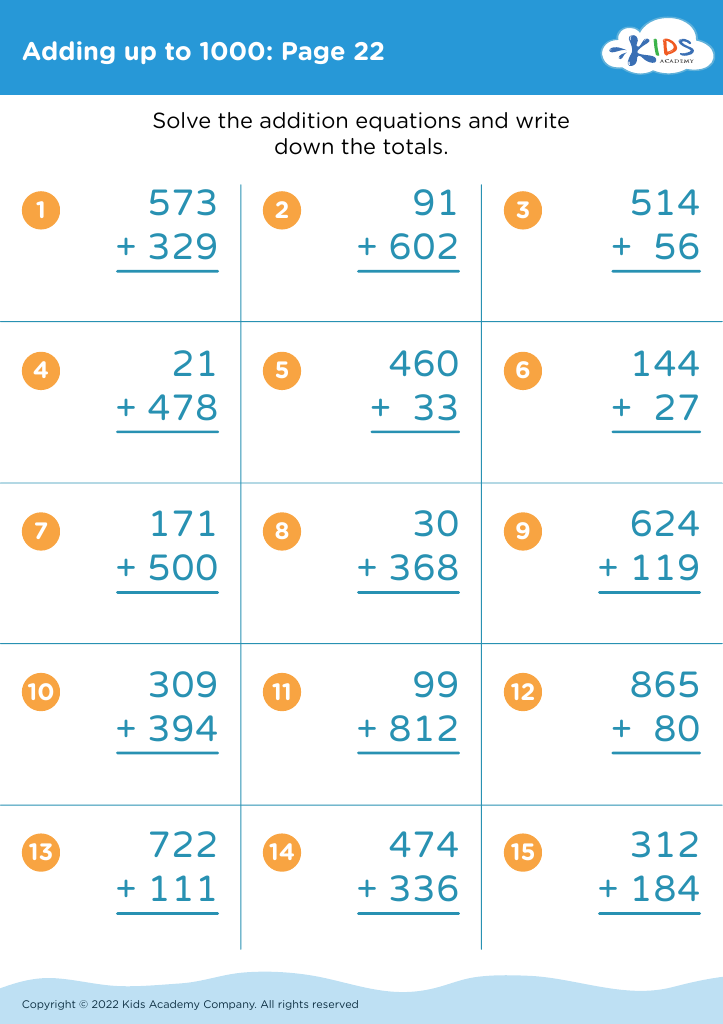
 Assign to My Students
Assign to My Students

